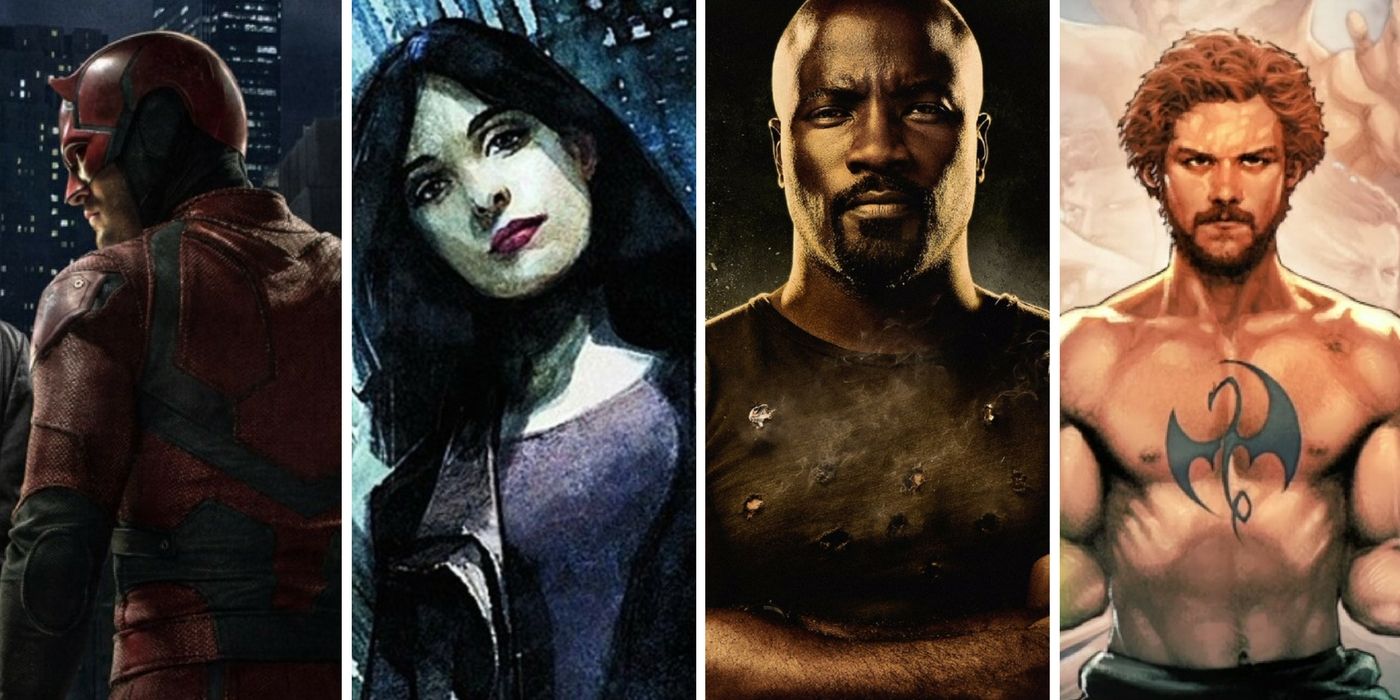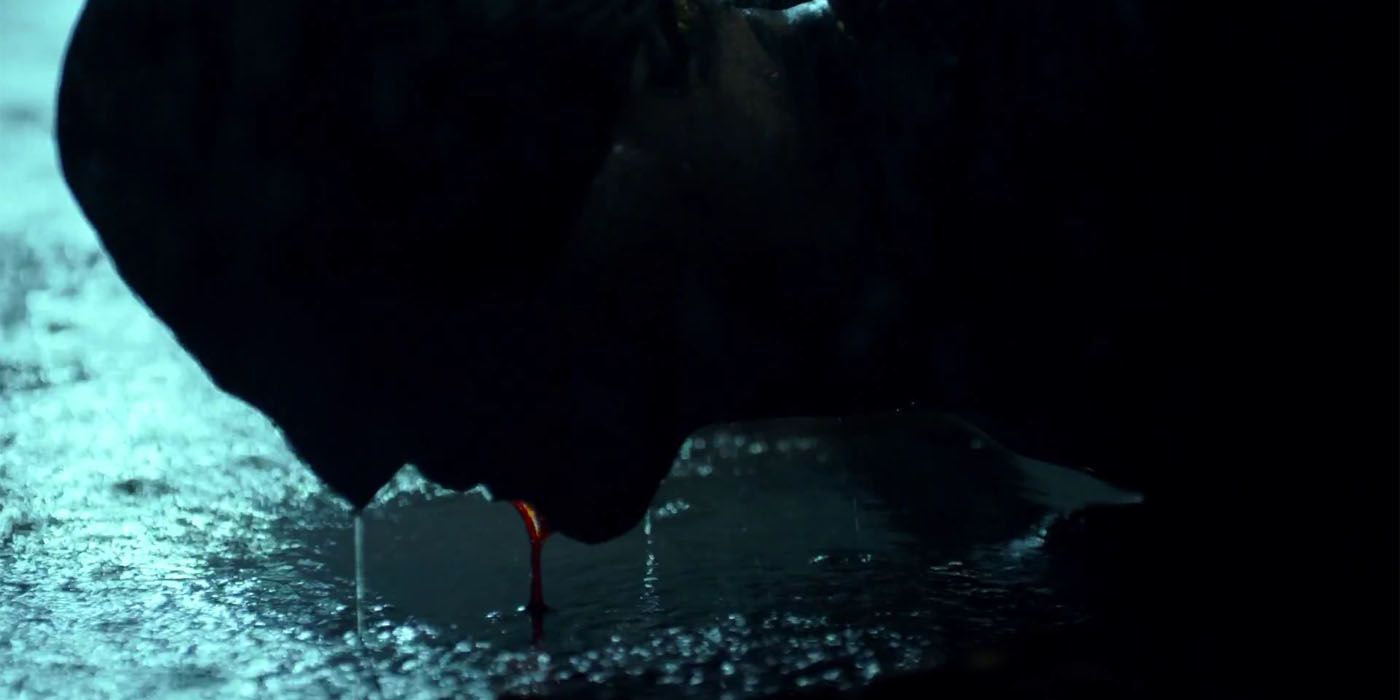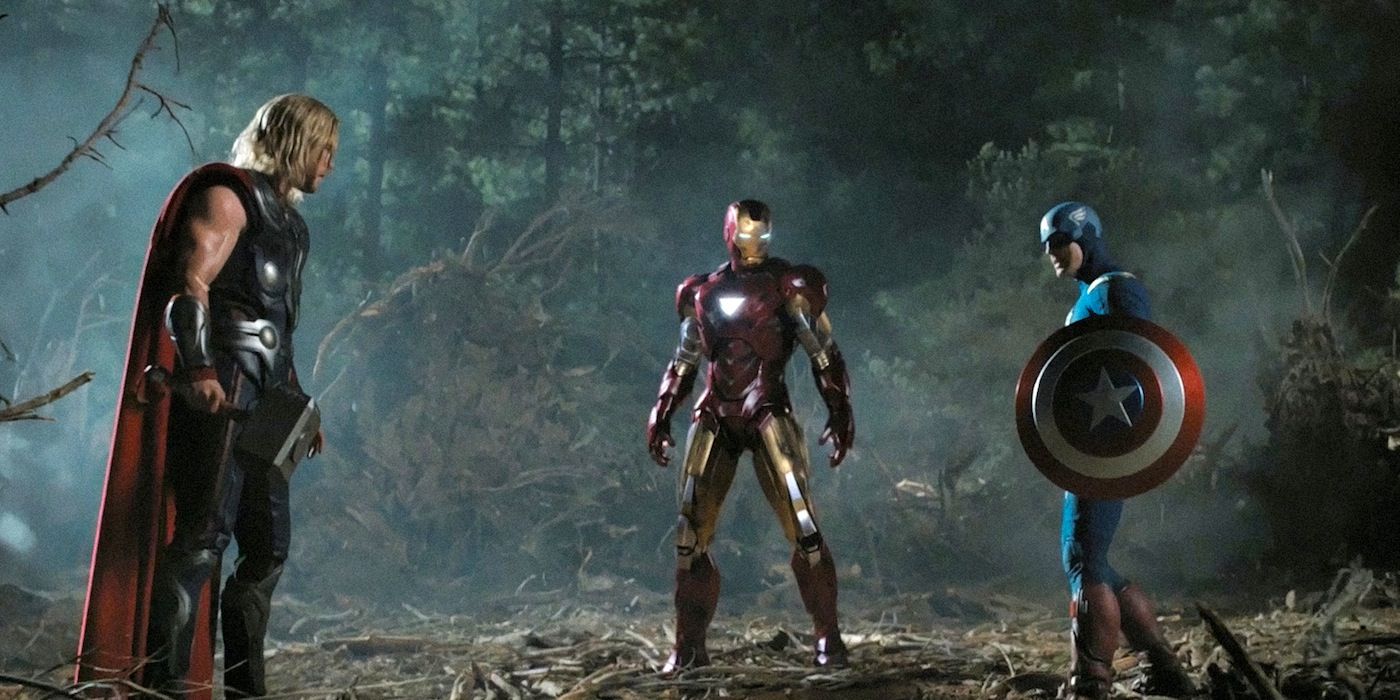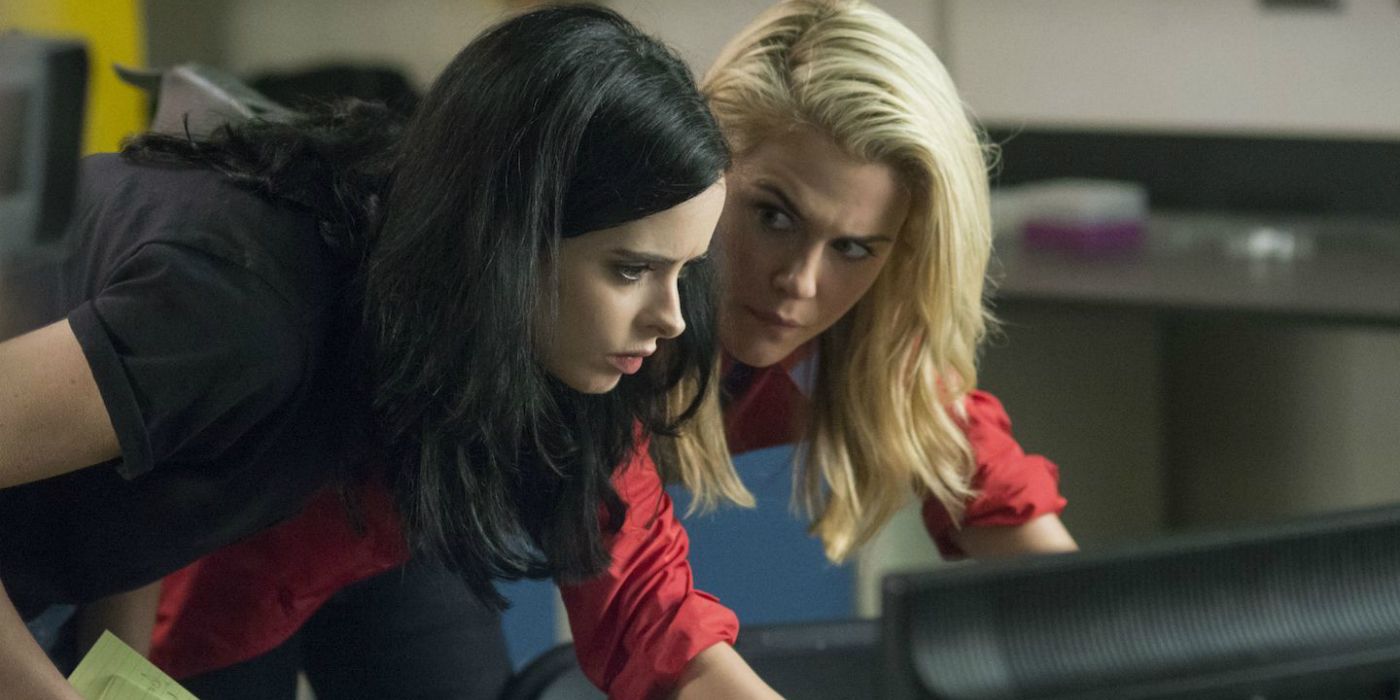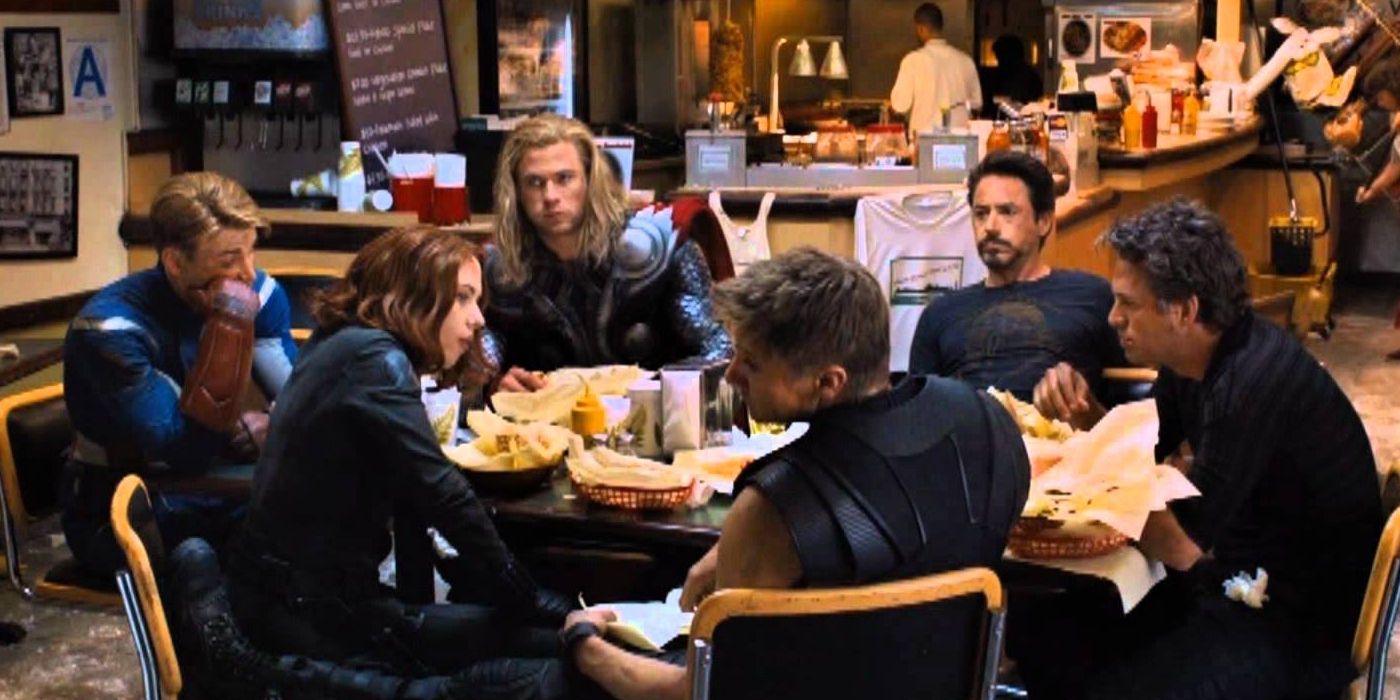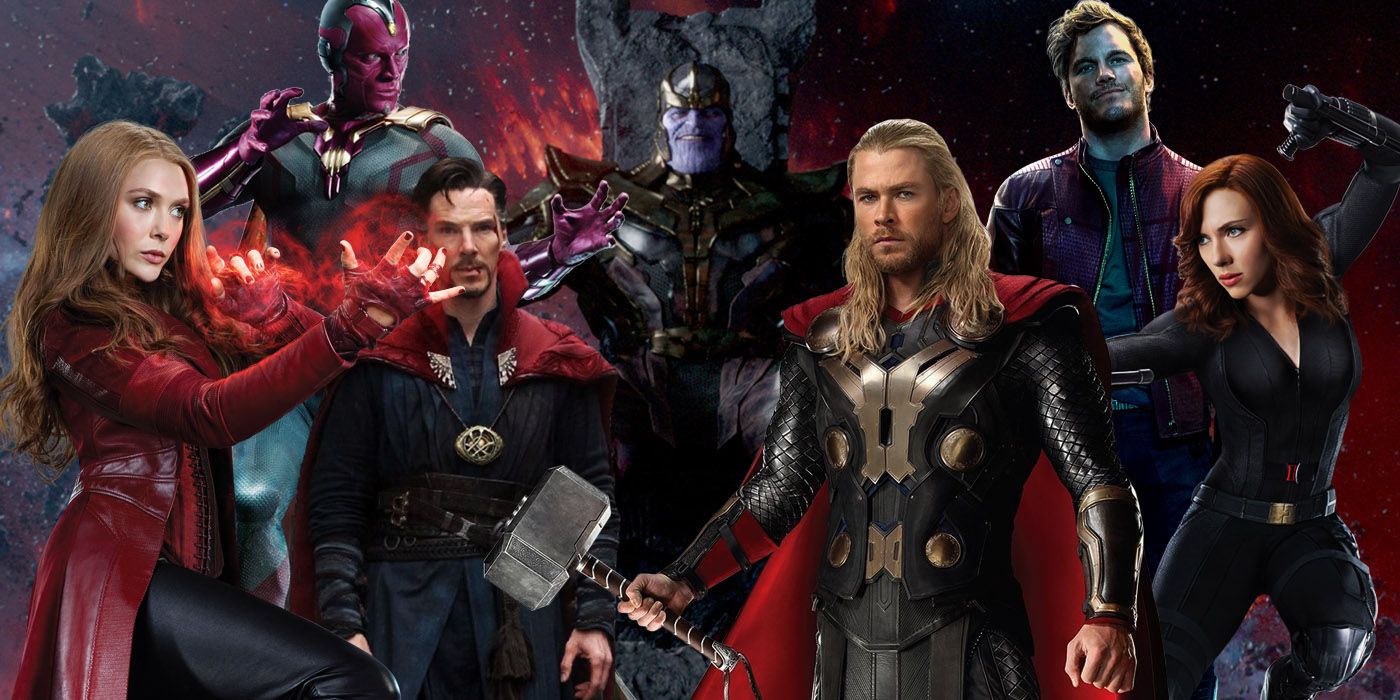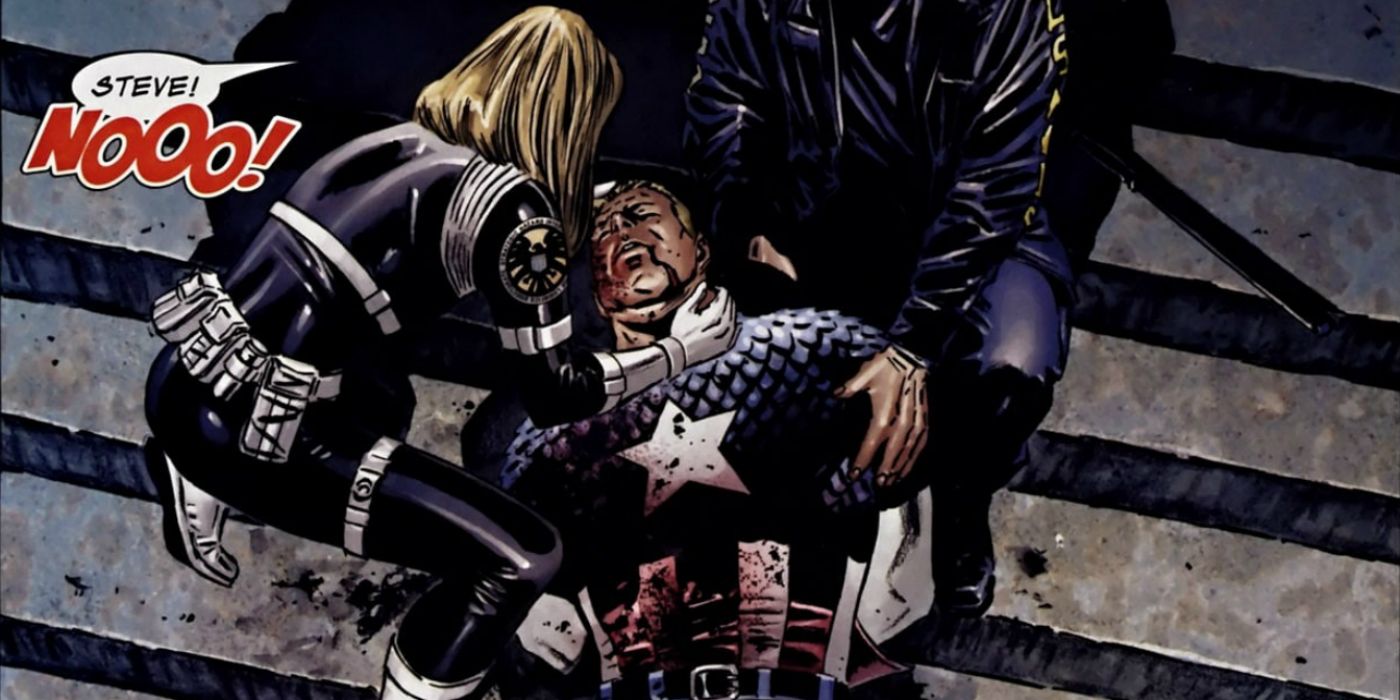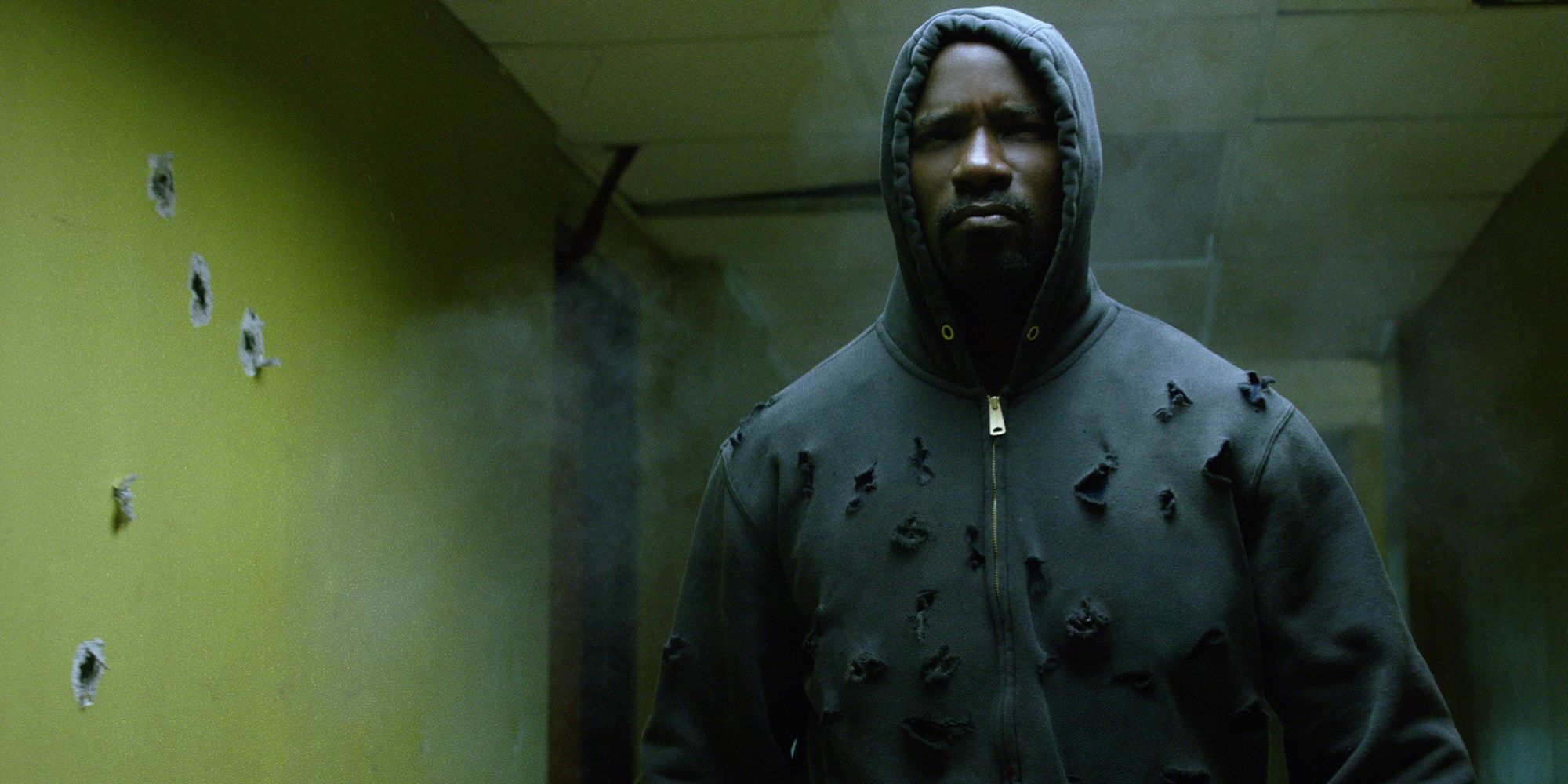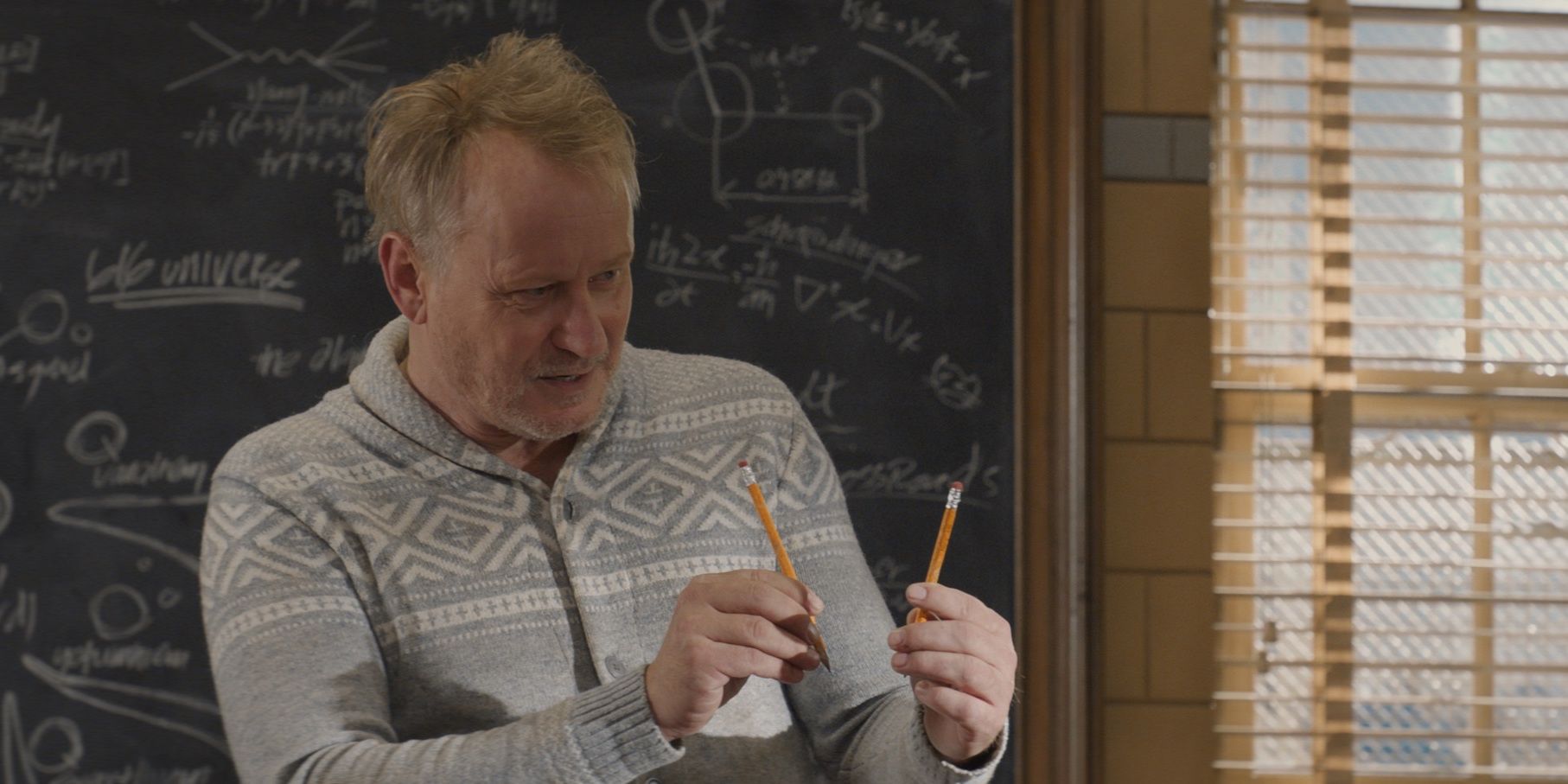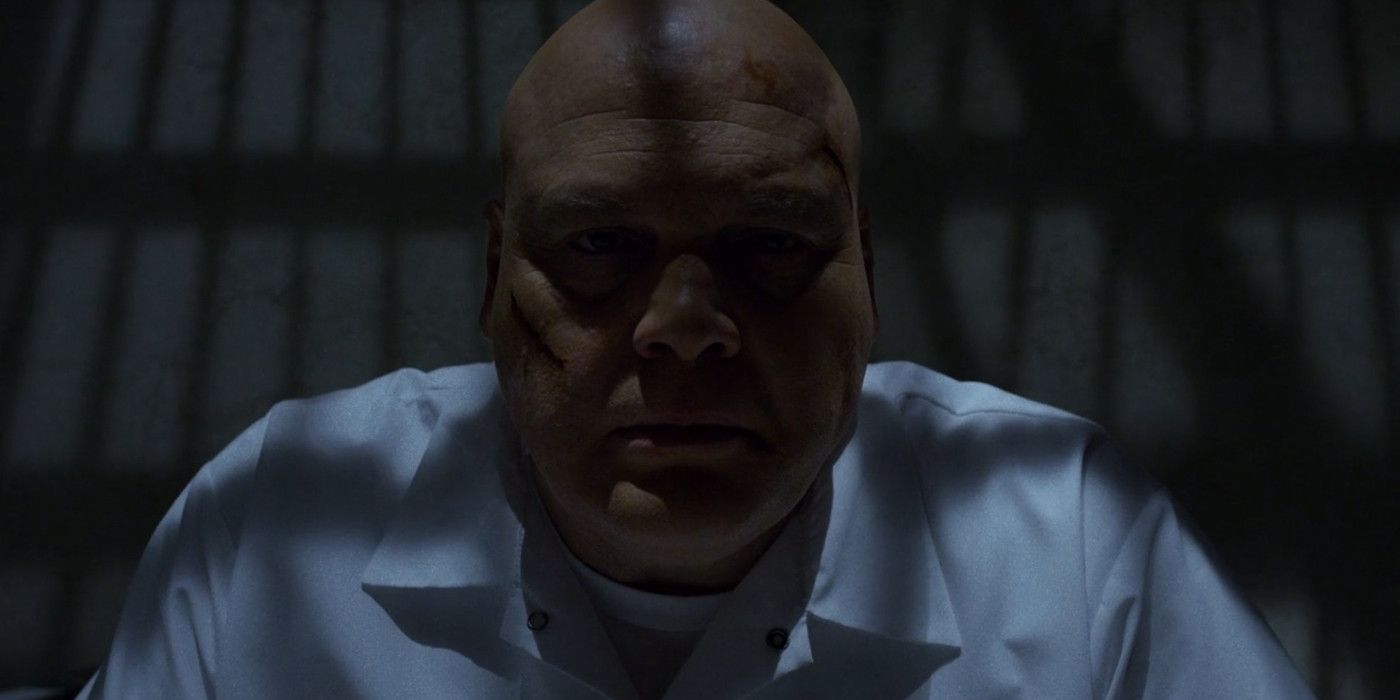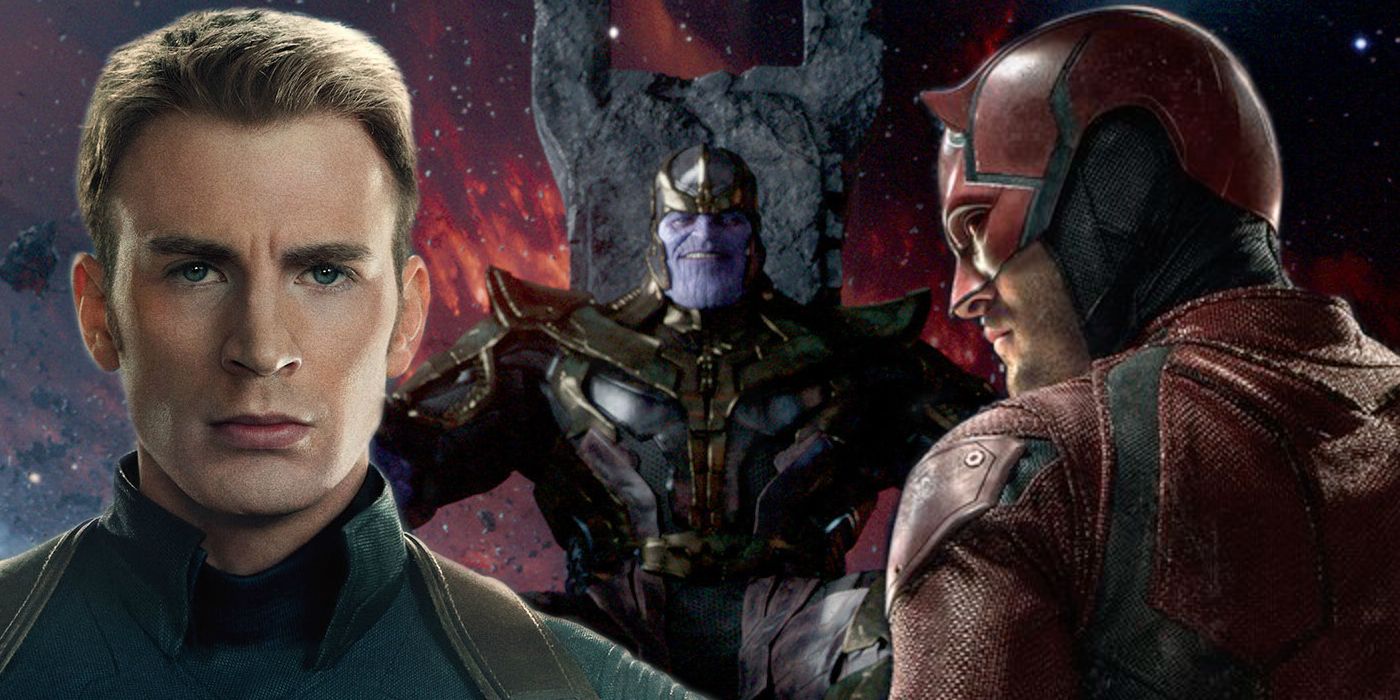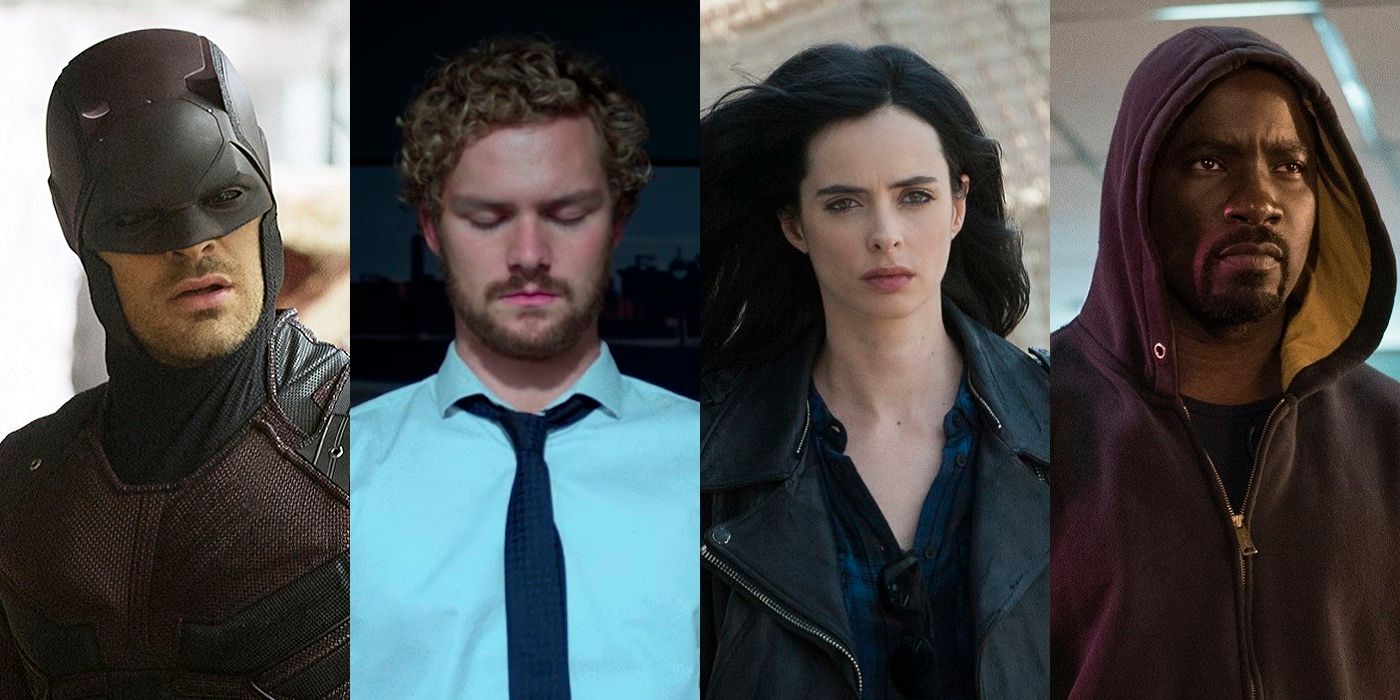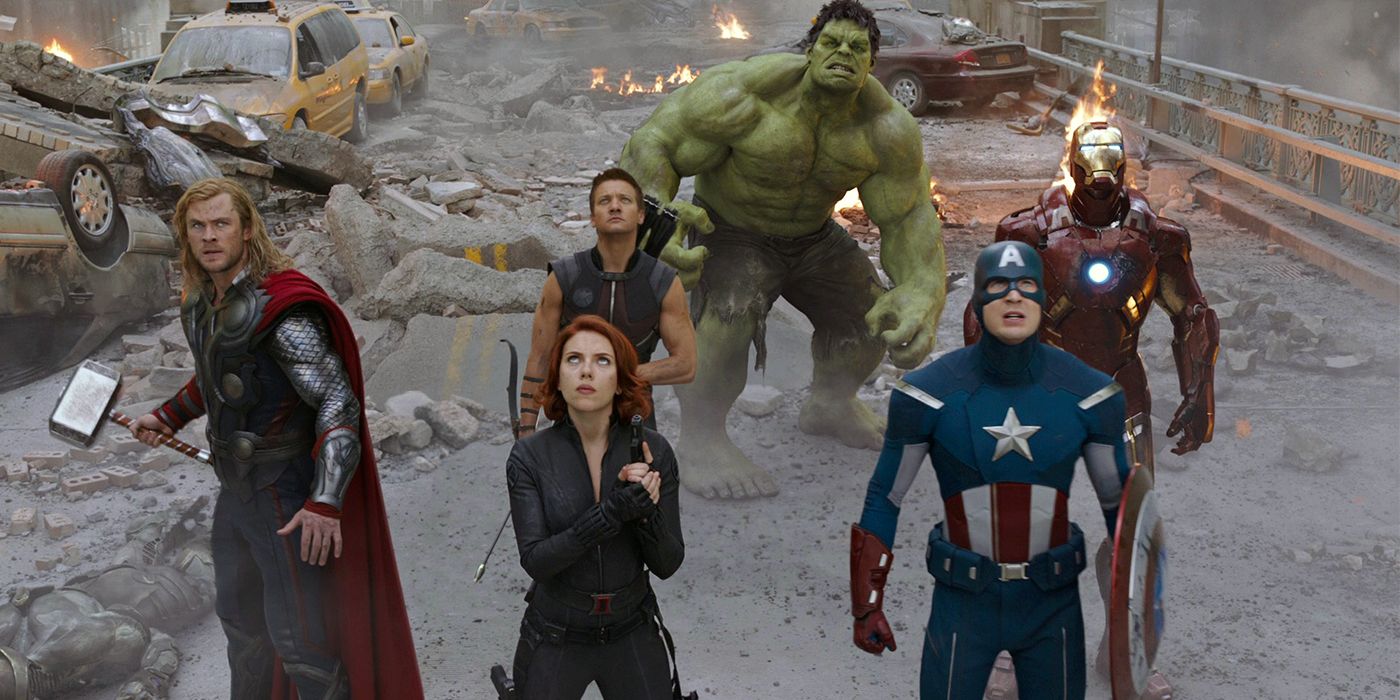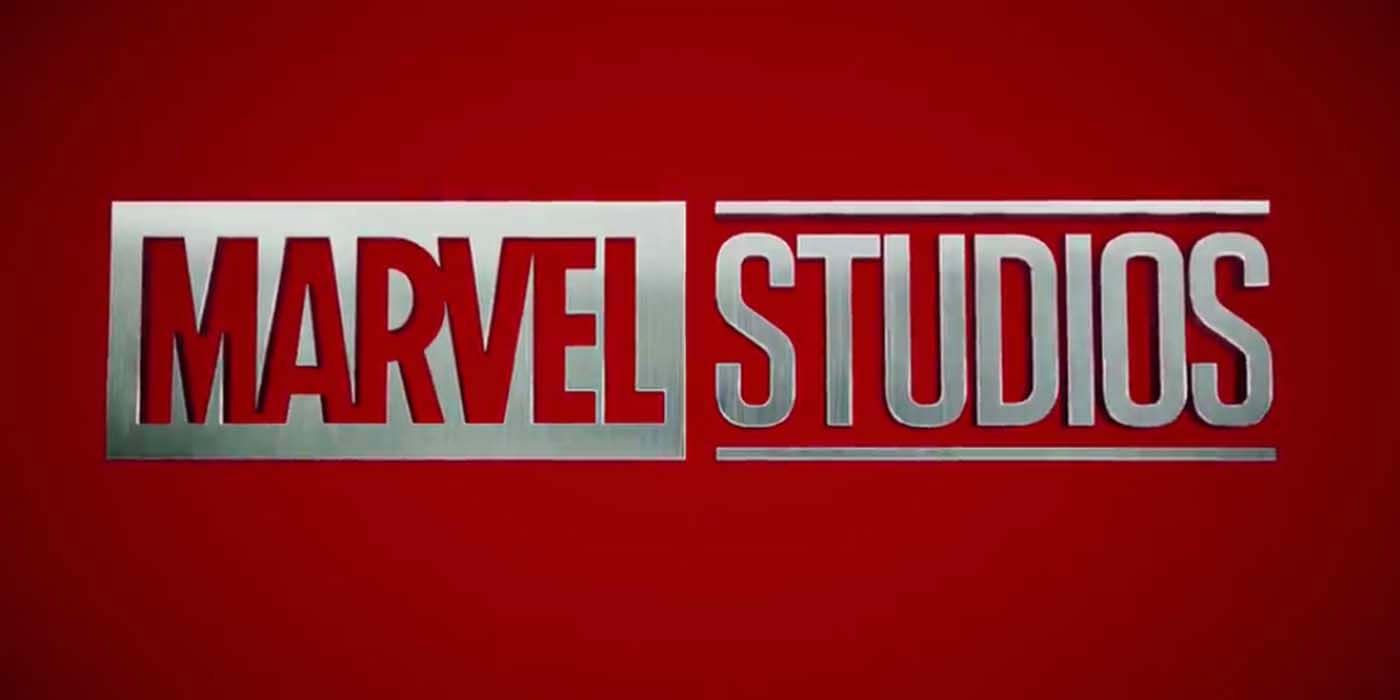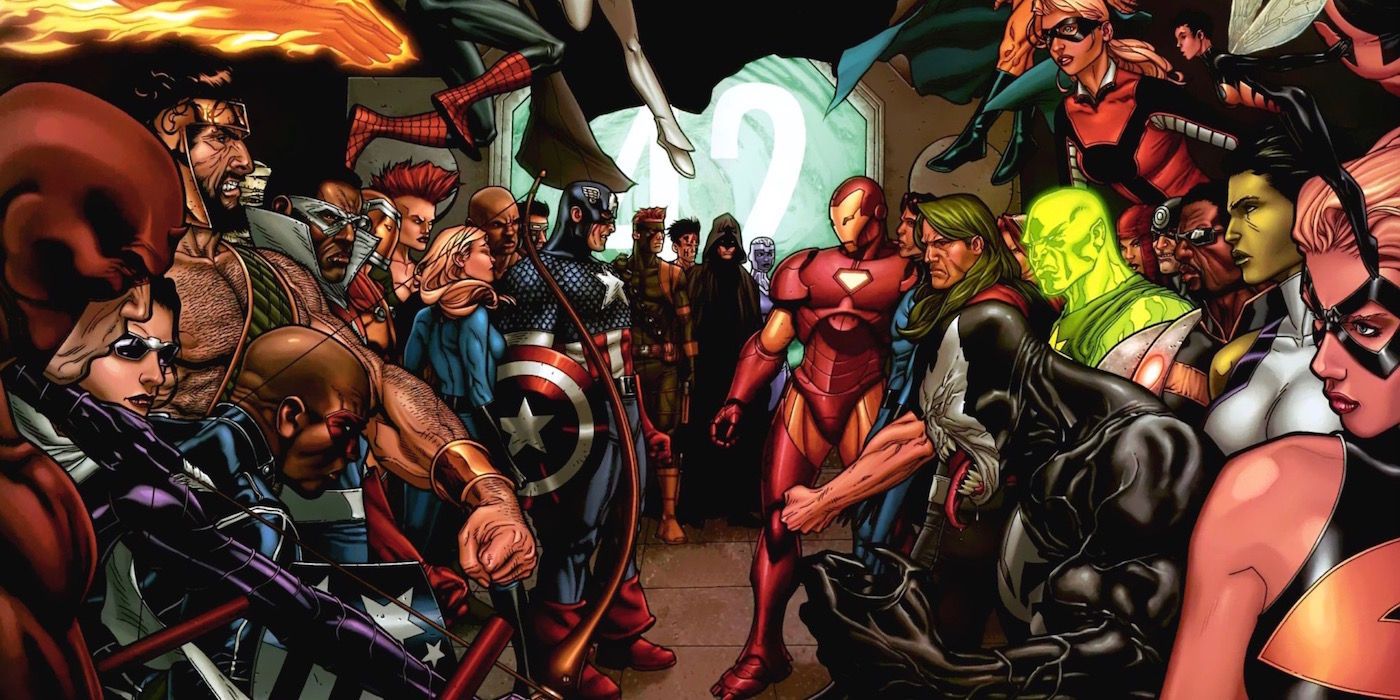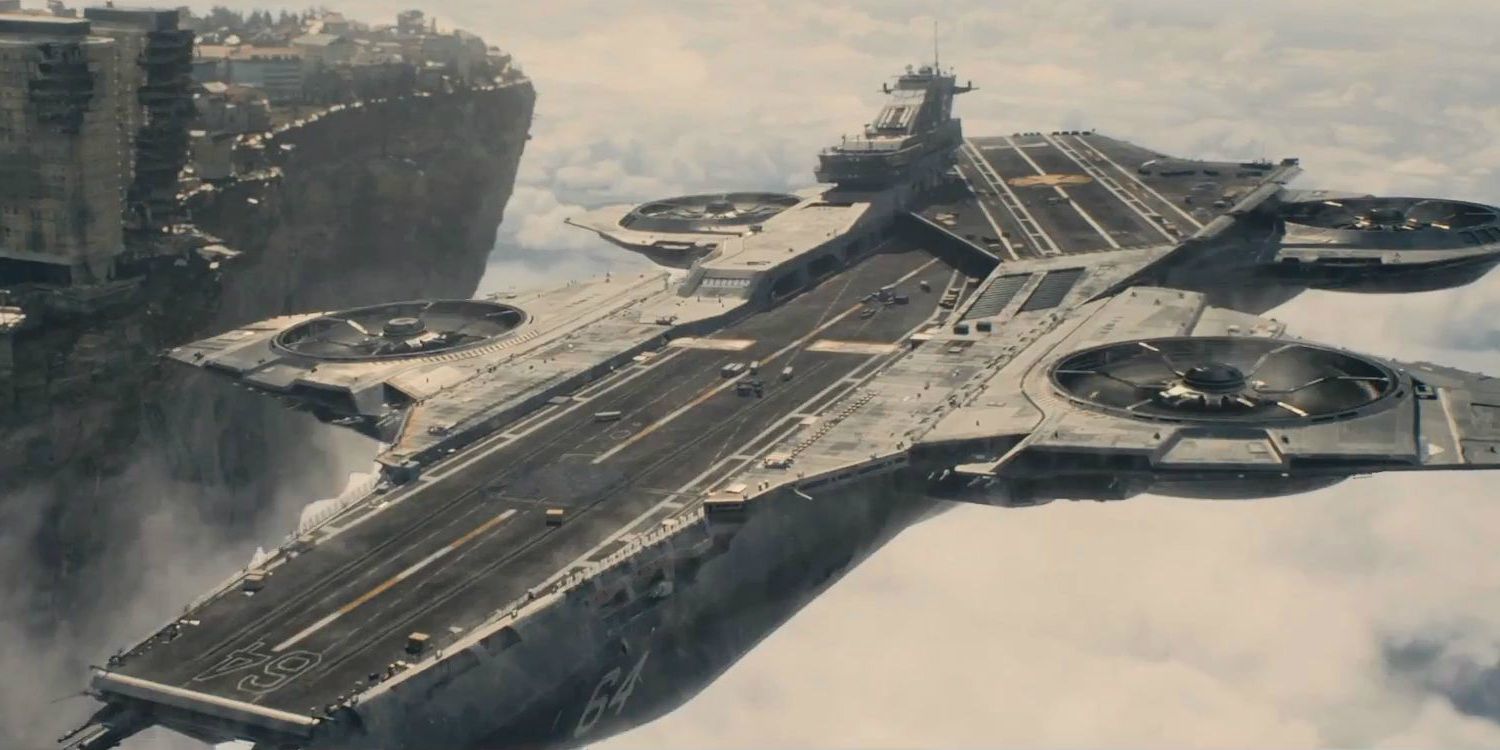It was back in 2008 when Samuel L. Jackson's Nick Fury first approached Robert Downey Jr.'s Tony Stark regarding the Avenger Initiative, and the Marvel Cinematic Universe was born. Eight years later, the MCU has grown to include fourteen films and five television series, with many more in various stages of development, and is the highest-grossing franchise in the history of film. With its universe firmly established, Marvel has been free to focus on introducing new characters as well as crossovers that bring characters together in new and exciting ways (as was the case in 2012's The Avengers, 2015's Avengers: Age of Ultron, and 2016's Captain America: Civil War). Marvel plans to give the same treatment to its Netflix series with next year's The Defenders, which will bring together the likes of Daredevil, Jessica Jones, Luke Cage, and Iron Fist.
Ever since Daredevil was announced, fans have wondered if the Devil of Hell's Kitchen would ever appear alongside Earth's Mightiest Heroes in the Avengers films. With Jessica Jones, Luke Cage, and Iron Fist joining the fray in The Defenders, the anticipation and excitement have only grown, leading Kevin Feige to weigh in on the possibility of a crossover. But the question isn't whether or not Marvel will cross over the two franchises (with its continued dominance at the box office, the studio can do pretty much whatever it wants), but whether or not it should. While there are certainly some strong reasons for bringing the Avengers and the Defenders together on film, there are also plenty of reasons to keep them apart.
Here are 7 Reasons The Avengers And The Defenders Should Cross Over, And 8 Reasons They Should Not.
15. Why they shouldn't: The Tones Are Vastly Different
The tones of the Marvel films and the Netflix series are vastly different, almost to the point of being irreconcilable. While the films have been rated PG-13 and geared toward general audiences, the series have been much more gritty and skewed toward a more mature audience. This couldn't be more apparent than the brutal murder of Anatoly Ranskahov in Daredevil season one. After pummeling Ranskahov with his fists, Wilson Fisk positions Ranskahov beside his car and slams the door again and again, ultimately decapitating him. The shot then cuts to beneath the car where Ranskahov's headless body falls to the ground and blood drips from the door.
This was an incredibly memorable scene that would never appear in an MCU film, and with good reason. It simply would not fit with the tones of the films. And it is not the only one. Daredevil has a number of bare-fisted brawls that would feel out of place in the films, and there is no chance of one of the Avengers snapping the neck of a villain the way Jessica Jones did in the show's season one finale. Any interactions between the two teams will require one of them to alter its tone, which is why a crossover is ill-advised.
14. why they should: The Initial Altercation Between The Two Groups Would Be Awesome
If the two groups ever meet on screen, it will be after The Defenders has premiered and its four heroes have already formed some sort of team bond. Thus, when the Avengers first arrive on scene, there will undoubtedly be a misunderstanding that leads to a brawl between the two groups similar to the one between Thor and Iron Man in The Avengers. Perhaps the Avengers are brought in to round up a group of super-powered vigilantes roaming New York City, or the two groups converge on the same villain and neither is willing to back down, and a full scale battle ensues.
Yes, Marvel already dabbled in heroes fighting among themselves in Civil War, but a Defenders/Avengers conflict has the potential to raise the stakes since the groups are not familiar with one another and would not be pulling punches. Considering each character's penchant for flips, a Captain America/Daredevil fist fight would be visually stunning. As would a battle pitting Iron Man's suit against Iron Fist's powers, a test of strength between Luke Cage and an equally strong Avenger such as Black Panther or Thor, and Jessica Jones using her strength to negate Black Widow's superior fighting skills. No matter the individual match-ups, the battle would be pulse-pounding.
13. Why they shouldn't: Supporting series characters would need to be cut
One of the benefits that television series have over films is more time to develop characters. While this makes little difference with regard to the protagonists, who receive ample screen time regardless, it makes a world of difference to secondary characters and villains. This is why Kingpin and Kilgrave are considered two of the MCU's stronger villains, and why the show's supporting characters are considered more compelling than their film counterparts. More time on screen means more time to develop the characters, which makes for stronger relationships to the protagonist.
The friendship between Jessica and Trish in Jessica Jones feels much deeper than the one between Tony and Rhodey in any of the Iron Man films. And despite the friendship between Steve and Bucky developing over the course of three films, it still pales in comparison to the one between Matt and Foggy, who have much better on screen chemistry. Any crossover between the Defenders and Avengers will almost certainly result in these secondary characters being cut, which would be a shame.
12. why they should: The Character Interactions Would Be Entertaining
As incredible as its actions scenes are, the success of the MCU hinges almost entirely on its characters and the interactions between them. This is why the post-credits scene at the end of The Avengers (that has the characters simply sitting in a restaurant eating Shawarma), the party scene in Avengers: Age of Ultron (where the Avengers take turns trying to lift Thor's hammer), and virtually all of Guardians of the Galaxy, work as well as they do. The characters are so well-written and well-acted that the interactions between them often end up being the best parts of the films.
The interactions between the Defenders and the Avengers would be equally entertaining. Whether it be Tony Stark's quips having zero impact on Jessica Jones, Luke Cage putting the moves on Natasha Romanoff, or Steve Rogers simply questioning Matt Murdock about his abilities, bringing the two groups together would offer endless opportunities for character exploration and comedy.
11. why they shouldn't: There are too many characters struggling for screen time as it is
The number of characters in the MCU is staggering, and as a result the amount of screen time each character receives in each film is extremely limited. In the original Avengers, which focused on the five titular heroes, Thor and Hulk appeared on screen for roughly twenty-five and twenty-eight minutes, respectively. In Age of Ultron, which saw the additions of Scarlet Witch, Quicksilver, and Vision, their screen times dipped to fourteen and twenty-three minutes, respectively. The correlation is clear: the more characters that appear in the film, the less screen time each character receives.
In Civil War, the disparity is even greater. While Iron Man, Captain America, and the Winter Soldier receive their fair shares of screen time, the rest of the Avengers receive only around ten minutes each, with Hawkeye and Ant-Man being treated mostly as afterthoughts. And this was without the aforementioned Thor and Hulk, who did not appear in the film at all. This problem will only grow in Infinity War with the returns of Thor and Hulk, and the additions of the Guardians of the Galaxy. There simply isn't enough screen time to go around, and adding the Defenders will only make things worse.
10. why they should: The Defenders Make Natural Replacements If/When An Avenger Dies
Two of the biggest issues plaguing the MCU are the supposed lack of strong villains (which isn't as big of a problem as some make it out to be), and Marvel's outright refusal to kill off main characters. Bucky Barnes, Loki, Nick Fury, Phil Coulson, and Pepper Potts all seemingly die on screen only to return later down the road. The only characters, thus far, to die and remain dead are Quicksilver and Groot, though even the latter's death is softened by the appearance of Baby Groot later in the film.
This is not likely to remain the case, however. The longer the MCU thrives, the more likely Marvel is to begin killing off certain Avengers and replacing them with other heroes. In fact, for some characters, the writing is already on the wall, and for others who happen to have crucial elements of the plot embedded in their forehead (cough, Vision), a death in the near-future seems almost a certainty. When these Avengers die in battle, the Defenders will make logical replacements.
9. why they shouldn't: Introductions will be problematic
When it comes to introducing its characters on film, Marvel has stuck to a basic formula: the character first appears in their own film before crossing over in future films. The only exceptions to the rule, thus far, have been Spider-Man and Black Panther, who appeared in Civil War without being previously introduced. While Spider-Man is widely known among general audiences and needs no introduction, the same cannot be said of Black Panther. Casual fans unfamiliar with Black Panther's history were left in the dark regarding his abilities, and were left largely apathetic toward the character as a result.
The Defenders would face a similar circumstance if brought into the MCU. While fans of the shows and comics would be familiar with the characters, a large portion of the audience would not. Marvel would then be in the awkward position of introducing each of the characters (thereby adding to what is sure to be an already long running time) or foregoing introductions and risk alienating fans unfamiliar with the characters. The only way to avoid this problem would be to avoid a crossover entirely.
8. why they should: It Makes Logical Sense
Based on the way the MCU has taken shape so far, it makes logical sense for the Defenders to eventually appear alongside the Avengers on screen. Through its various Easter Eggs, Marvel has clearly established that certain organizations and individuals within the MCU are keeping close tabs on super-powered beings elsewhere in the world. Whether its Nick Fury asking Tony Stark if he thinks he is the only superhero in the world in Iron Man, Jasper Sitwell telling Captain America that Hydra uses a program to predict future threats (one of whom is Stephen Strange) in Captain America: The Winter Soldier, or Tony Stark revealing that he has been practically stalking Peter Parker for who knows how long in Captain America: Civil War, it's clear that the main players in the MCU are well-aware of their super-powered friends and enemies. It stands to reason that Tony, among others, are keeping a close eye on Daredevil, Jessica Jones, Luke Cage, and Iron Fist (especially given the fact that all four of them live in New York City), and will interact with them eventually.
7. why they shouldn't: The Defenders are better equipped for small-scale threats
At the end of The Avengers, after the heroes have gone their separate ways, Maria Hill asks Nick Fury why he's so sure they will return. In response he says, "because we'll need them to." This line perfectly encapsulates the difference between the Avengers and the Defenders: the former is needed for large-scale threats, while the latter is better equipped for smaller ones. Simply put, Daredevil, a vigilante who mostly operates at night under the cloak of darkness, is better equipped to deal with criminal masterminds like Kingpin than he is facing off with the likes of Ultron. Whereas Thor, the God of Thunder, is better suited for a fight with Loki than he is battling a dirty cop.
A crossover between the two teams will mean pulling one of them out of their element. Either the Avengers will be forced to deal with problems far below their capabilities, or the Defenders will be put in a position where they are clearly outmatched. Fans already have a problem with Hawkeye and Black Widow fighting alongside their fellow Avengers since the two lack powers and are often seen as liabilities. Adding the Defenders to the mix will only exacerbate the problem.
6. why they should: Thanos Is A Powerful Enough Villain To Warrant The Defenders' Involvement
Everything that has happened in the MCU so far has been centered around Thanos and his pursuit of the infinity gauntlet. For those unaware, Thanos is one bad dude. Granted, he hasn't done much in the movies so far. But even if Marvel ignores many of his abilities from the comics, the mere fact that he will be in possession of the infinity gauntlet and the infinity stones means he will be quite the formidable opponent for the Avengers in the Infinity War.
Fighting the mad Titan, who once killed half of Earth's population with a snap of his fingers, will require all hands on deck. This means the Avengers, the Guardians of the Galaxy, and the Defenders fighting side-by-side to take on Thanos and what will surely be a sizable number of evil henchmen. While the Avengers and Guardians are dealing with threats throughout the world and the rest of the galaxy, the Defenders can earn their place in the MCU by protecting the streets of New York.
5. why they shouldn't: A crossover means putting the series on hiatus
Netflix currently has a combined four seasons of Daredevil, Jessica Jones, and Luke Cage available for streaming. Iron Fist will be released early next year, and The Defenders and The Punisher are currently filming. Beyond that, Netflix has already greenlit Daredevil Season 3 and Jessica Jones Season 2, and is rumored to have plans for series featuring other Marvel characters. This poses a large problem in bringing the Defenders to the big screen in that doing so will mean putting the individual series on hiatus.
Considering how successful the series have been thus far, doing so would put Marvel at risk of upsetting not only the powers that be at Netflix (who may not be too keen on putting their series on hold so the characters can appear on film) but also fans of the series who would prefer streaming episodes at home rather than spending money to see the films in theaters.
4. why they should: Fans Of The Shows Would Love It
To Marvel's credit, it seems to know exactly what its fans want. There have been very few missteps in the MCU so far, and that is mostly due to the fact that Marvel understands its fans' desires, and then delivers on them. (The MCU's mere existence is a testament to this.) And if there is anything fans want, it is to see more crossovers within the MCU. This is why fans rejoiced when news broke that the Guardians of the Galaxy would be appearing in Avengers: Infinity War, when it was announced that Spider-Man would officially join the MCU in Civil War, and why they hold out hope that the X-Men and the Fantastic Four will follow suit. They want to see their favorite characters interact on screen, and the Defenders are no exception.
Ever since the Daredevil movie rights reverted back to Marvel from 20th Century Fox, fans have longed for Marvel to not only do justice to the character, but to eventually bring him into the MCU. Sure, having him crossover with Jessica Jones, Luke Cage, and Iron Fist is a great start, but what fans of the shows would really love is seeing their heroes on screen fighting beside the Avengers.
3. why they shouldn't: It's unnecessary
Marvel is currently experiencing a level of success unlike any other movie studio in history. For the past eight years, every one of its films has been a critical and box office success. The same can be said of each of its Netflix series, as Daredevil, Jessica Jones, and Luke Cage have all gotten stellar reviews, and The Defenders will likely follow suit. This makes a crossover simply unnecessary, both creatively and financially.
Excluding Doctor Strange, Marvel films average $330 million in worldwide box office. This is an incredible number that will only marginally increase with the addition of the Defenders. And for this small financial gain, Marvel will have to deal with the aforementioned issues of reconciling the tones of the two franchises, introducing the characters to fans unfamiliar with the shows, and adding four new characters to films already teeming with them. The films and television series are experiencing immense success on their own. A crossover simply isn't necessary.
2. why they should: A True Cinematic Universe Requires Crossovers
Before the formation of the MCU, there were no superhero crossovers on film. There were plenty of films about individual characters (like Superman and Batman) or super teams (like the X-Men and the Fantastic Four), but none in which these heroes and teams interacted with one another. The simple fact is the same studio didn't own the movie rights to multiple characters so they legally couldn't cross them over. This was in vast contrast to the comics in which different heroes and teams crossover all the time.
Marvel changed the game with its creation of the MCU. It made crossovers not only possible, but the norm, and inspired other studios to create shared universes of their own. If it wants its universe to be true to the comics on which its heroes are based, then the Defenders and the Avengers simply must cross paths. Keeping the two teams apart would not only be a step backward, but would defeat the purpose of the universe as a whole. If the teams aren't going to interact, then they might as well belong to separate studios.
1. why they shouldn't: It exacerbates The sequel problem
Ever since the Avengers first united in 2012, fans have complained about Earth's mightiest heroes not reaching out to their fellow Avengers in subsequent films. Why would Tony not call on the Hulk for help after his home was destroyed in Iron Man 3? Why would Captain America not ask Iron Man to blast the helicarriers out of the sky during the climax of Captain America: The Winter Soldier? And why would Thor not reach out to all of the Avengers when Malekith threatened to destroy the entire universe at the end of Thor: The Dark World? This issue has confounded the minds of fans for years, and will only worsen in a Defenders/Avengers crossover.
Once the Defenders interact with the Avengers, all tension in their individual series dissipates. What need will Daredevil have for Claire Temple when he can easily go to Avengers tower for superior medical treatment? Why would Jessica Jones need to track down her charges on foot when she can access Tony's technology to easily locate any runaway from behind a computer? As a matter of fact, why would the Defenders go into any situation without the Avengers to back them up? A crossover between these two teams will bring these questions, and many more, to the forefronts of fans' minds, which means Marvel may be better off keeping them apart.

